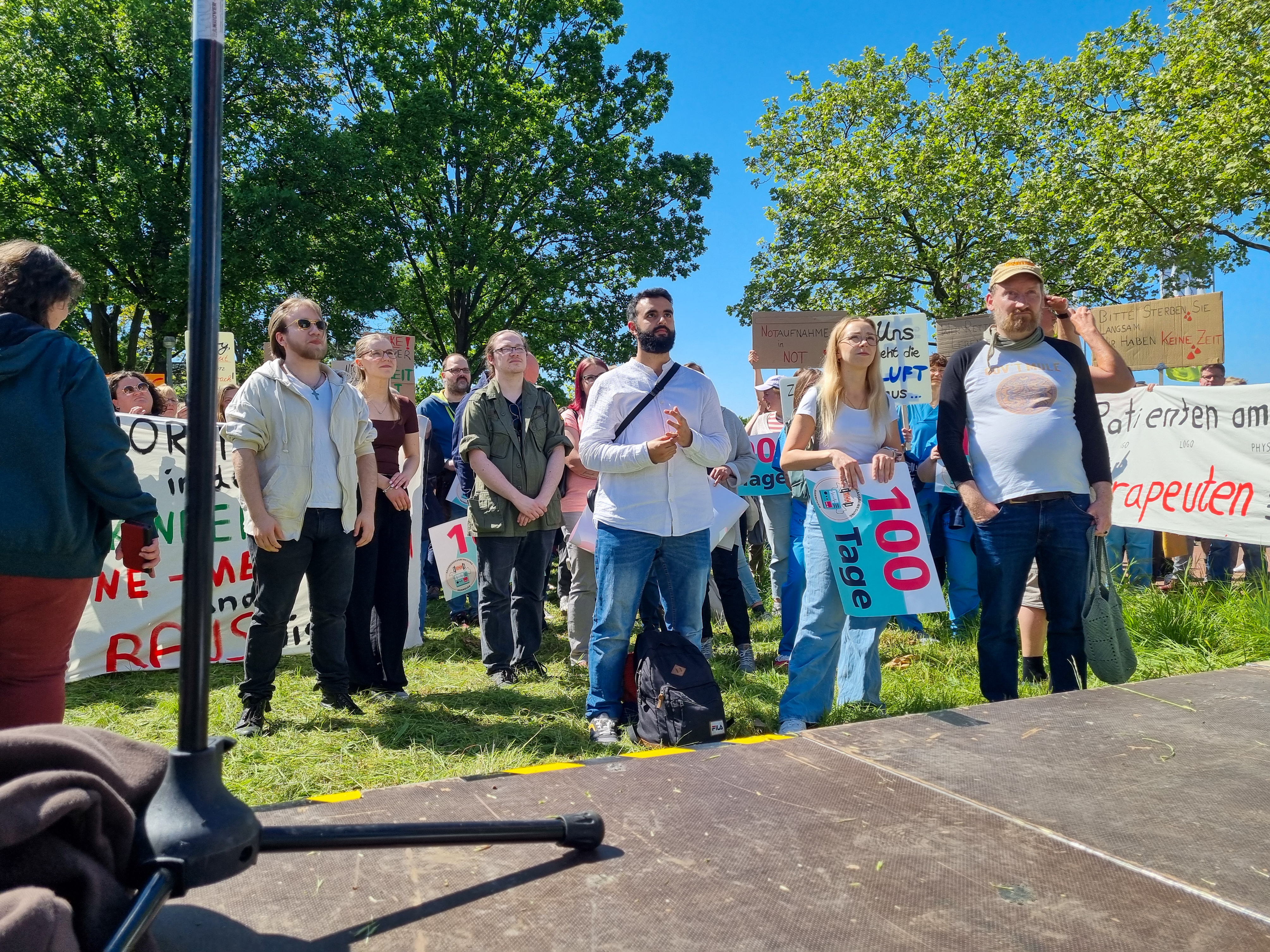In the dispute over a "tariff relief" for MHH employees, the Presidium has offered relief measures with consequence management. However, the offer was rejected.

In May, the trade union Verdi called on the state of Lower Saxony to enter into collective bargaining negotiations for a "wage relief agreement" for Hannover Medical School (MHH). This should - in addition to the existing collective agreement of the federal states - regulate relief through better staffing ratios in nursing, but also for MHH employees in therapeutic professions and trainees, for example. Verdi linked the demand to a 100-day ultimatum, which expires this week.
MHH cannot make its own wage agreements
As a state organisation, MHH cannot make its own collective bargaining agreements. The legal situation is different to other university hospitals, which have concluded a collective agreement on discharge (TV-E). The union therefore intends to submit concrete demands to Lower Saxony's Science Minister Falko Mohrs this Thursday. However, the state cannot reach a collective agreement for the MHH without giving up its membership of the Tarifgemeinschaft deutscher Länder (TdL).
Understanding the desire for relief
"The MHH Executive Board understands the desire for relief. In discussions with Verdi and the employee representatives, we have therefore tried to reach an agreement by other means," explains Martina Saurin, Vice President of MHH and responsible for the Economic Management and Administration department. "The Staff Council has been offered talks on several occasions. Last week, we made a concrete offer for an agreement on relief measures with a management of consequences. Unfortunately, this offer was also rejected."
"A strike would lead to considerable restrictions in supply"
"Due to a shortage of nursing staff, more than 100 beds at MHH are currently permanently closed. A strike will lead to further bed closures that will affect care in the Hannover region and in Lower Saxony," explains Professor Frank Lammert, the MHH Vice President responsible for patient care. "A strike over a longer period of time would lead to considerable restrictions in care, and all patients whose highly specialised treatment is not possible elsewhere would be put at risk."
"We don't want to be the focus of Verdi's wage policy"
"We don't want to be the focus of Verdi's wage policy," says MHH President Professor Michael Manns. "This doesn't help anyone - neither our employees nor our patients. Together with the state of Lower Saxony and the TdL, we are discussing possible solutions and do not want to let the talks with the Staff Council and Verdi come to an end."
Text: Inka Burow